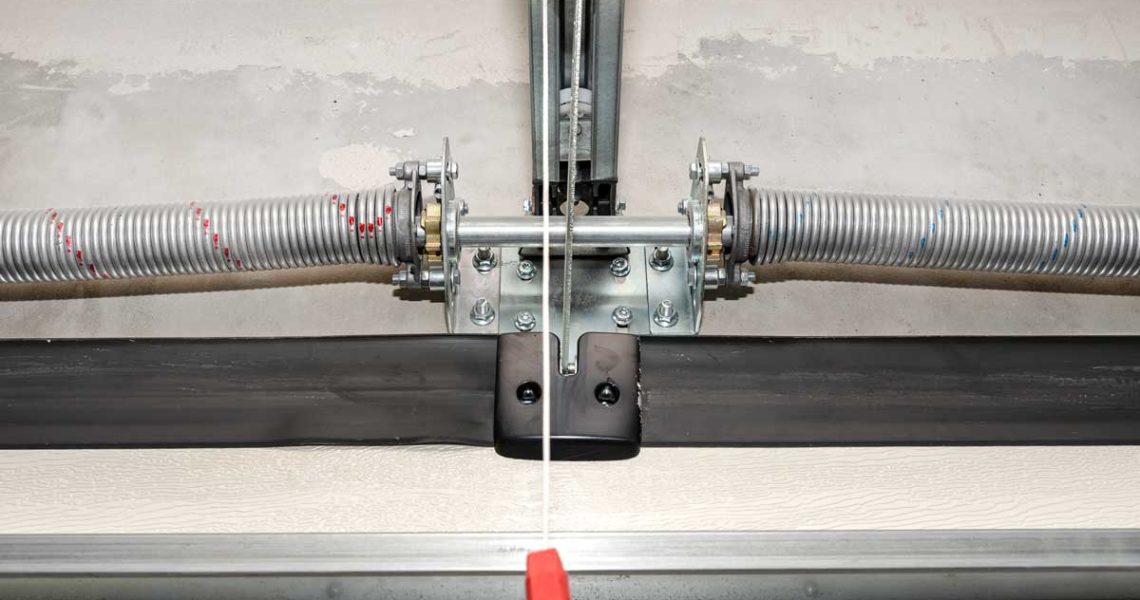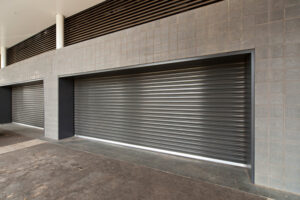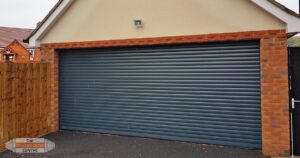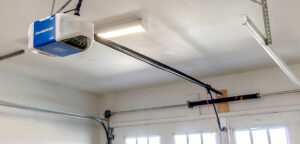In the picturesque neighborhoods of West Vancouver, a garage door isn’t just about aesthetics or convenience; it’s also about the safety of your home. When was the last time you examined your garage door springs? Many homeowners overlook this crucial component, unaware of the potential security risks they’re inviting.
At Top LevelUp Garage Doors, we’ve been in the business of garage door repair and installation long enough to have witnessed the unforeseen hazards of neglecting these springs. As the gateway to one of the most valuable spaces in your home, ensuring the optimal function of your garage door is paramount.
If you’re not convinced about the urgency, allow us to shed light on how broken garage door springs can compromise your home’s security. Trust us; this is a read you won’t want to skip if you’re keen on keeping your West Vancouver home safe and sound.
Why Do Garage Door Springs Break and How to Prevent It?
Garage door springs are surprisingly complex mechanisms. They work under constant tension to lift and lower what is often a heavy garage door. Because of this, they’re prone to wear and tear, and eventually, they will break. Several factors can accelerate this process. For instance, fluctuating temperatures in West Vancouver can cause the metal in the springs to contract and expand, weakening it over time. Additionally, rust formation, due to moisture, can also erode the springs’ structural integrity.
So how can you ensure the longevity of your garage door springs? The answer lies in proactive care, specifically through seasonal garage maintenance and regular garage door spring inspections.
Seasonal Garage Maintenance
Just like you wouldn’t ignore seasonal upkeep for your car or HVAC system, your garage door deserves the same attention. Before winter sets in, lubricate the springs to help reduce the risk of rust and corrosion. Also, as summer approaches, inspect for any wear and tear, and consider getting the springs tightened if needed. By treating seasonal garage maintenance as a ritual, you’re less likely to encounter unexpected spring failures.
Garage Door Spring Inspection
While a seasonal check-up is essential, it’s equally crucial to engage in a periodic garage door spring inspection. This involves a closer look at the springs, cables, rollers, and other mechanical parts. Listen for any unusual sounds, like creaking or scraping, which are often early indicators of a potential problem. A regular inspection can catch minor issues before they become significant hazards. If you’re not comfortable conducting these inspections yourself, we at Top LevelUp Garage Doors offer comprehensive assessments to ensure all components are in optimal condition.
By adhering to a routine of seasonal garage maintenance and regular inspections, you’re not just prolonging the life of your garage door springs; you’re also enhancing the overall security of your home. Investing time in preventive measures will undoubtedly save you from bigger headaches down the road, like costly emergency repairs or even a breach in your home’s security.

How Often Should I Replace My Garage Door Springs?
The question of when to replace your garage door springs can be a bit like asking how often you should replace your car tires—it varies. However, there are general guidelines that can give you a better idea of when it’s time to consider garage door spring replacement.
Typically, a standard torsion spring has a lifespan of about 10,000 cycles, with one cycle equating to your garage door opening and then closing. If you use your garage as a primary entry point, accumulating four cycles a day (two openings and two closings), that would mean you’d need to consider replacement approximately every seven years. For extension springs, which are generally less durable than torsion springs, the lifespan is often around 5,000 to 7,000 cycles.
Factors Influencing Replacement Time
Certain factors can accelerate wear and tear, necessitating an earlier replacement. These include:
1. Frequency of Use: The more you use your garage door, the faster the springs will wear out.
2. Climate Conditions: Coastal air, extreme temperatures, and humidity can all impact the metal’s integrity.
3. Maintenance: Poorly maintained springs will likely have a shorter lifespan.
Recognizing the Signs
Prior to complete failure, garage door springs often show signs of impending doom. These include an imbalance in the door, where one side appears higher than the other, or increased difficulty when lifting the door manually. If the garage door feels incredibly heavy or stops halfway while opening or closing, it’s likely that the springs are in poor condition.
Scheduled Replacement
We at Top LevelUp Garage Doors advocate for proactive spring replacement, especially if your springs are nearing the end of their average lifespan. By planning ahead, you can prevent many of the risks associated with sudden spring failure, such as property damage or, worse, a breach of your home security.
Remember, a broken garage door spring can have a ripple effect on the overall functionality and safety of your garage door system. So, don’t wait for an accident to happen; being proactive could save you time, money, and, most importantly, secure your home in West Vancouver.
Garage Door Spring Lifespan: What to Expect and How to Extend It?
If you’re a homeowner in West Vancouver, you may be curious about how long your garage door springs are actually going to last. Understanding the lifespan of your garage door springs is crucial for maintaining a secure and functional home. Generally, as mentioned earlier, torsion springs last about 10,000 cycles, while extension springs have a lifespan of approximately 5,000 to 7,000 cycles. But what if there were ways to stretch that lifespan, thereby maximizing your investment?
What Affects Lifespan?
Factors like the quality of the spring, the climate of your location, and the frequency of use can significantly impact how long your springs will last. Higher-grade materials and less frequent use can certainly extend their longevity, while environmental factors like moisture and temperature fluctuations can shorten it.
How to Extend Lifespan?
One of the most effective ways to extend the lifespan of your garage door springs is through regular maintenance, including a technique called garage door lubrication.
Garage Door Lubrication
Lubricating your garage door springs can go a long way in preventing rust and reducing wear and tear, effectively extending their operational lifespan. Use a high-quality lubricant specifically designed for garage doors, applying it sparingly but thoroughly to all moving parts, especially the springs. A well-lubricated spring is less likely to break prematurely and will operate more efficiently.
Routine Inspections
Conducting regular checks can help you spot issues like rust, loose coils, or irregular gaps between coils, which are all signs of impending failure. Addressing these issues early can extend the life of your springs.
Professional Maintenance
At Top LevelUp Garage Doors, we offer maintenance services that include a comprehensive check of all parts, including springs, and professional garage door lubrication. Having an expert’s eye can often catch potential problems you might miss.
By giving your garage door springs the attention they deserve, you not only extend their lifespan but also contribute to a more secure and efficient home. So, take the time to invest in regular maintenance and enjoy the peace of mind that comes with a well-functioning, long-lasting garage door system in your West Vancouver home.
Conclusion
As we wrap up this comprehensive look into the world of garage door springs, it’s clear that these seemingly simple components play an enormous role in both the functionality and security of your garage door. And by extension, they significantly impact the safety of your West Vancouver home. The key takeaway is straightforward: regular garage door maintenance, including garage door lubrication and timely inspections, can save you from an array of troubles ranging from unexpected costs to potential security risks.
Investing in the maintenance and care of your garage door springs isn’t just about improving the longevity of a mechanical part; it’s about ensuring the safety and security of one of your most valued possessions—your home. So take the time to engage in regular inspections and maintenance. Your future self, and your West Vancouver home, will thank you.
Frequently Asked Questions
Question: How often should I lubricate my garage door springs?
Answer: Aim to lubricate your springs at least twice a year, preferably as a part of your seasonal garage maintenance. This helps reduce friction and prevent rusting.
Question: What are the signs of a failing garage door spring?
Answer: Listen for unusual noises, look for an imbalance in the door, or observe if the door stops halfway while opening or closing. These are red flags that shouldn’t be ignored.
Question: Do both springs need to be replaced at the same time?
Answer: Generally, yes. Even if only one spring breaks, the other is likely close to the end of its life cycle as well. Replacing both ensures a balanced operation.





